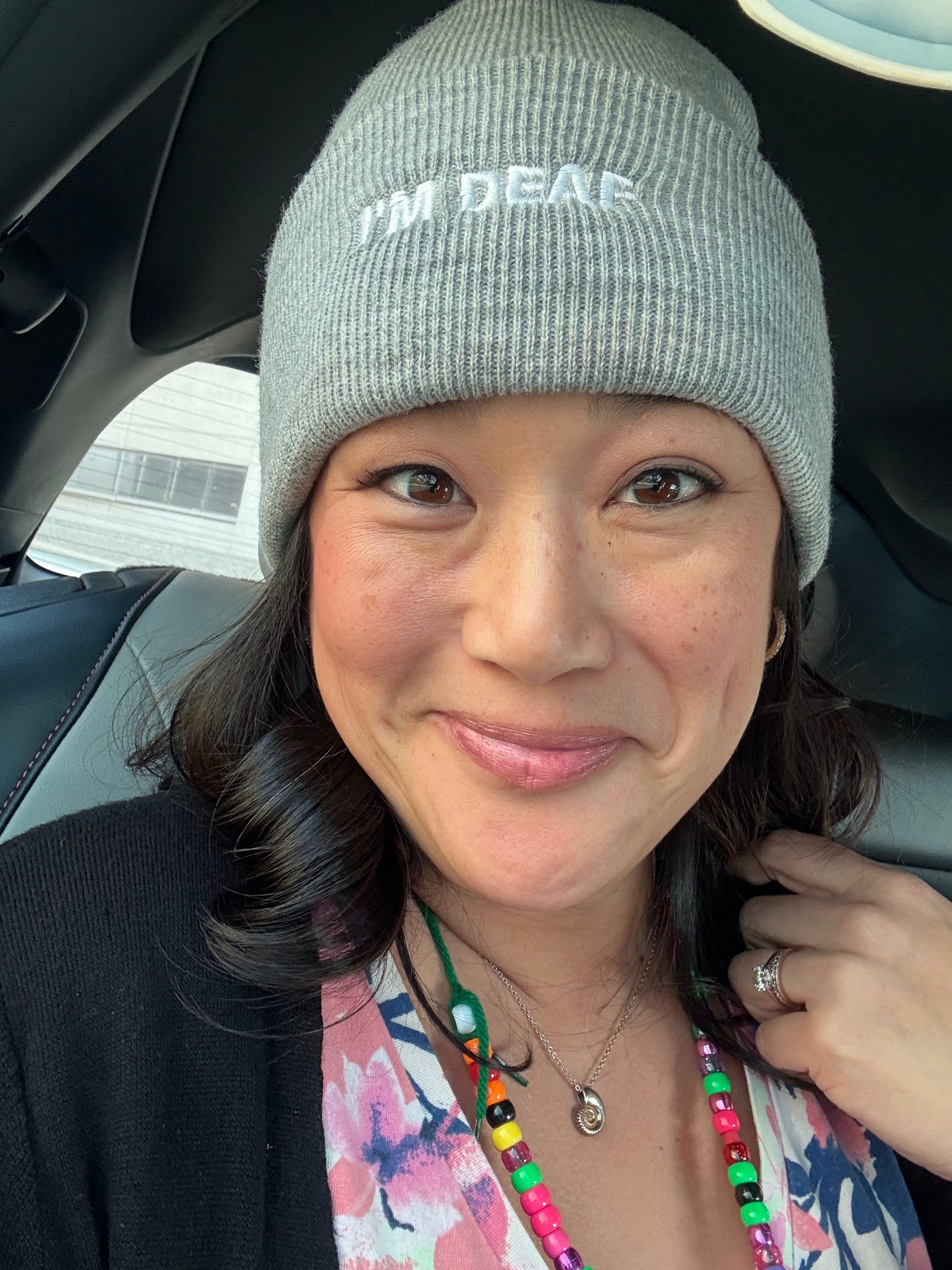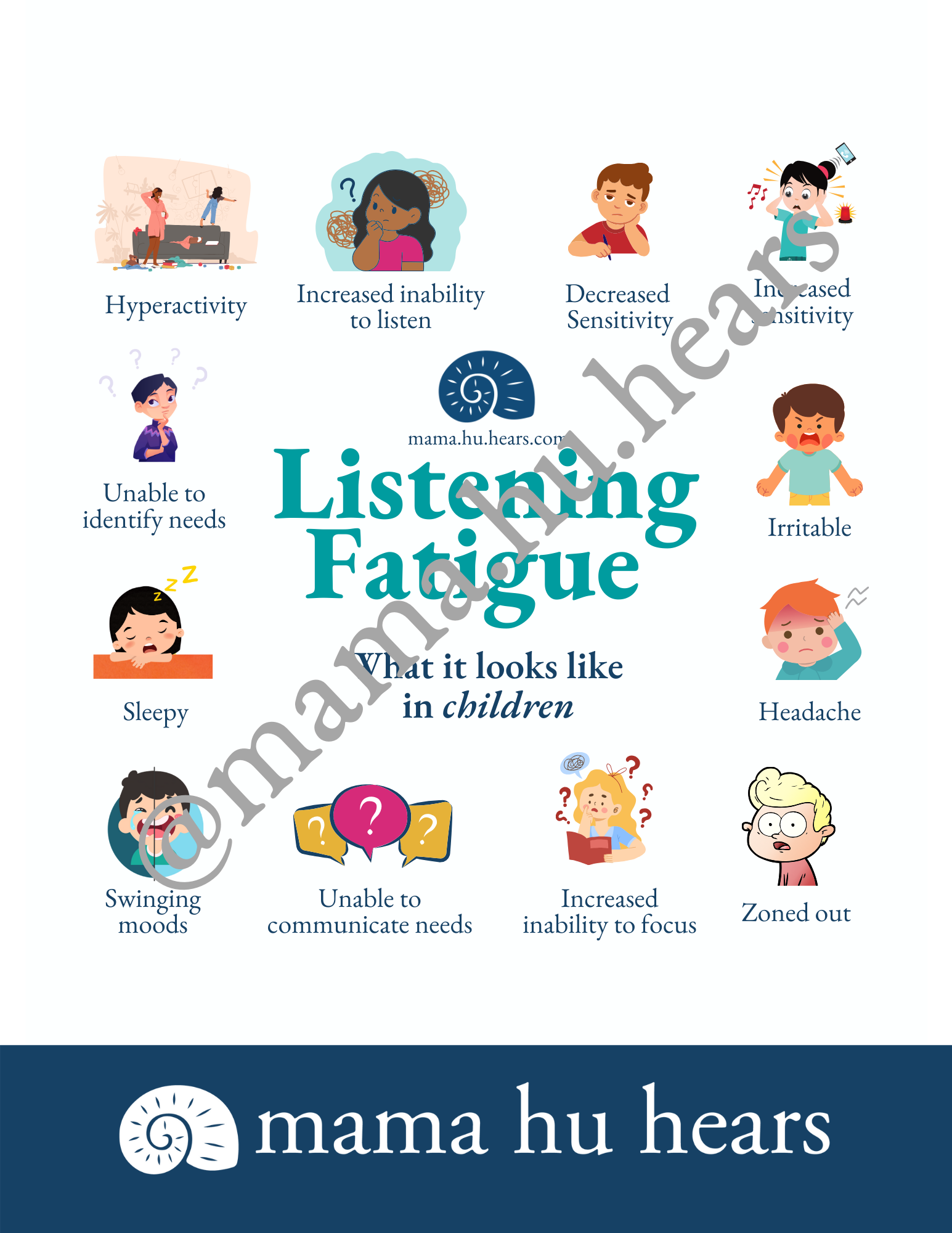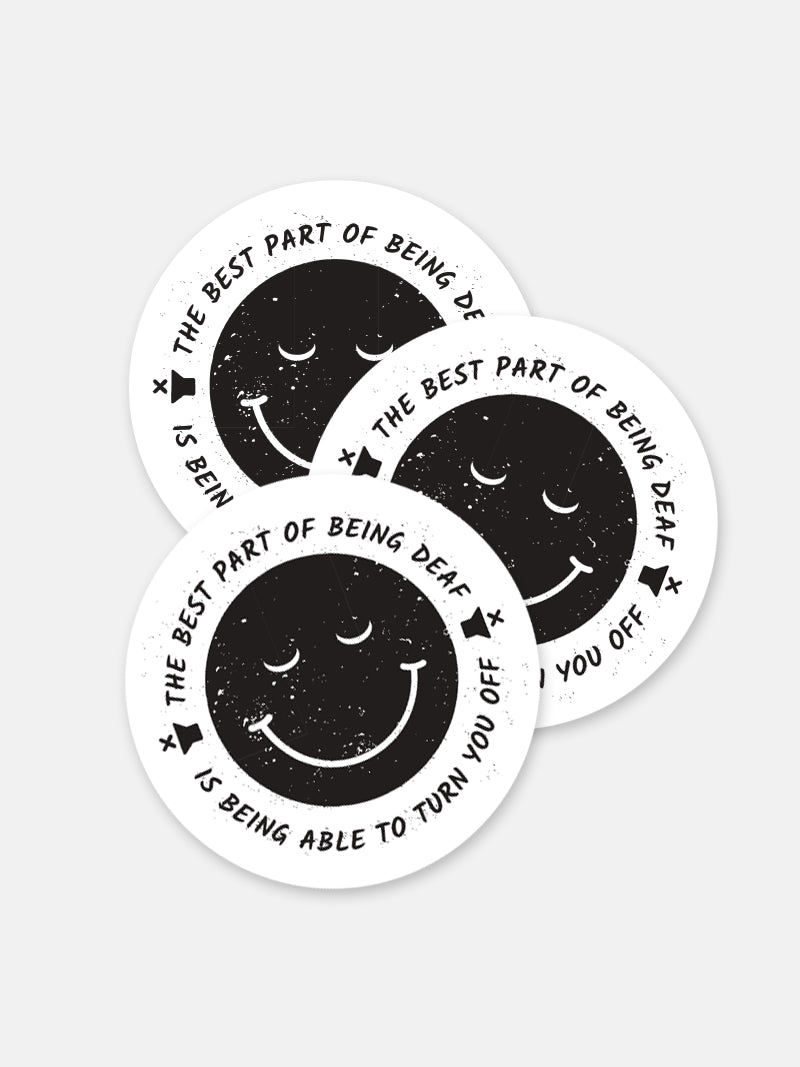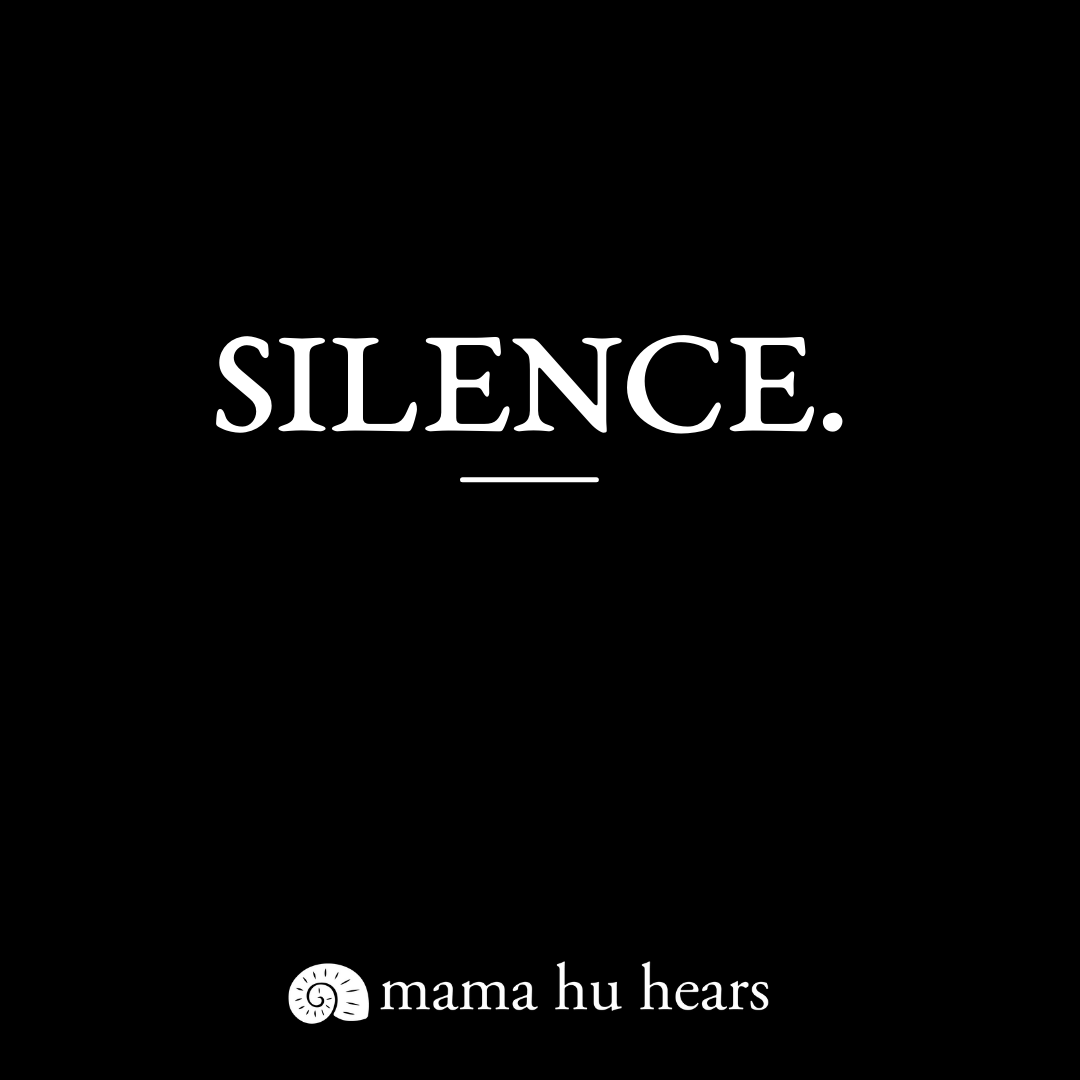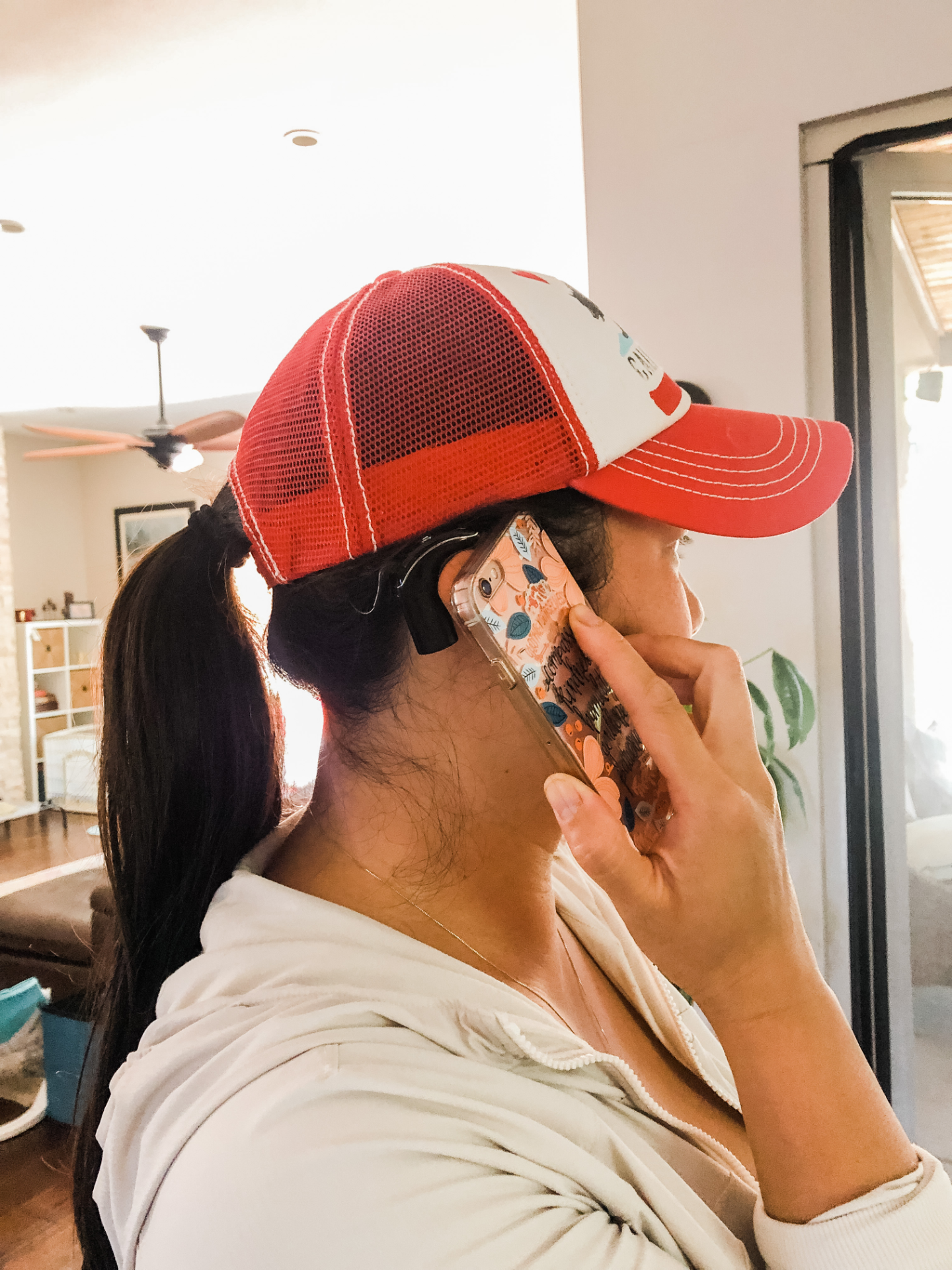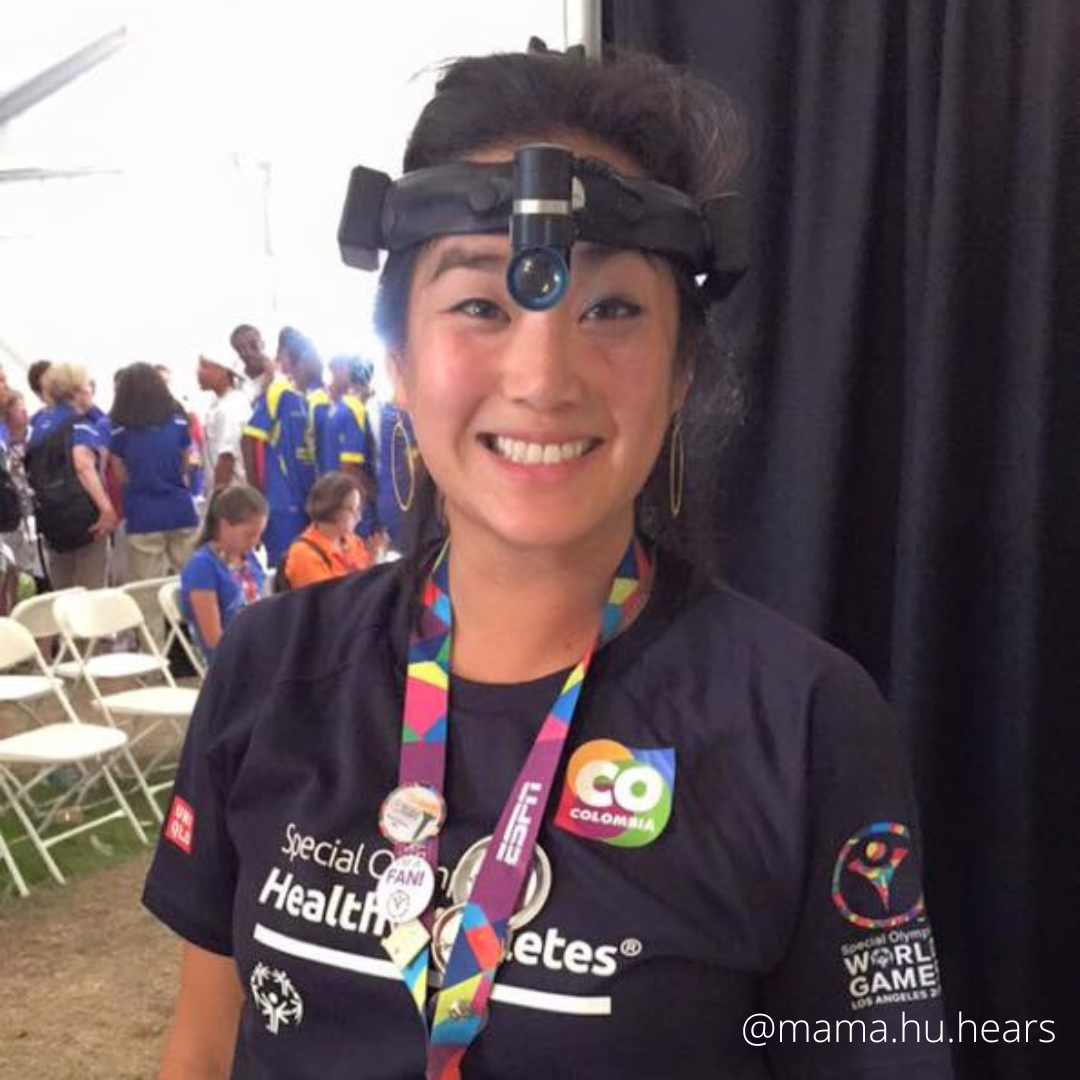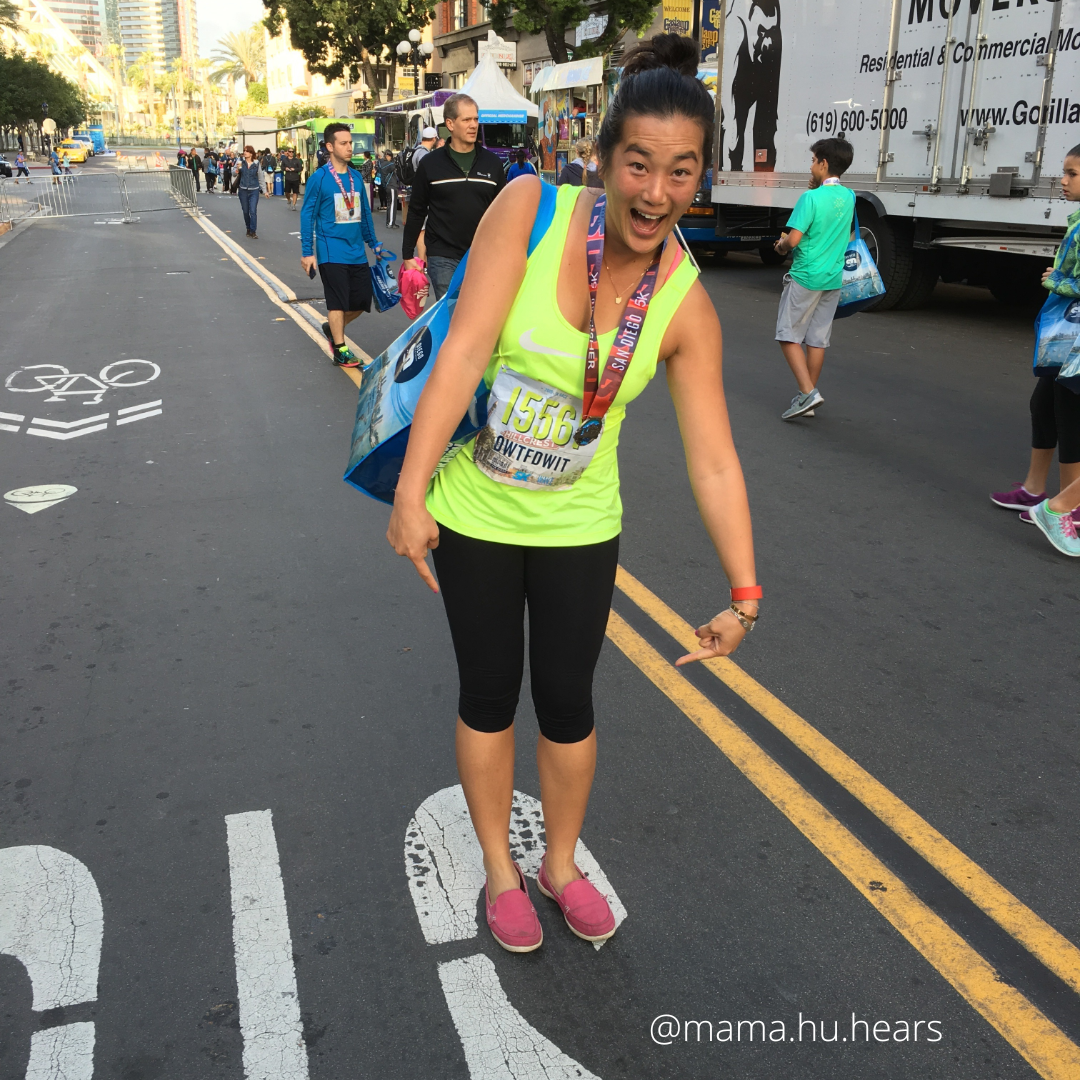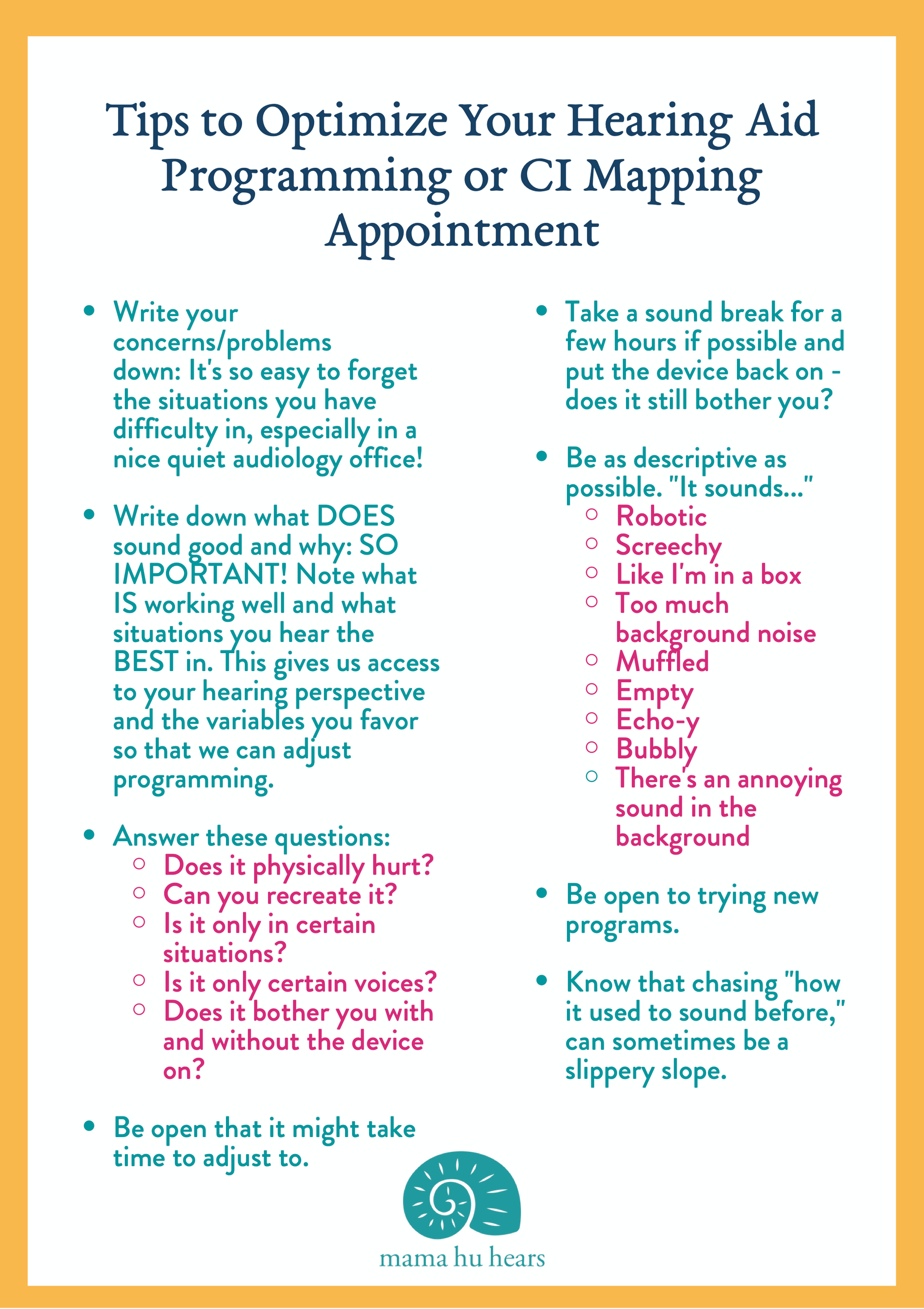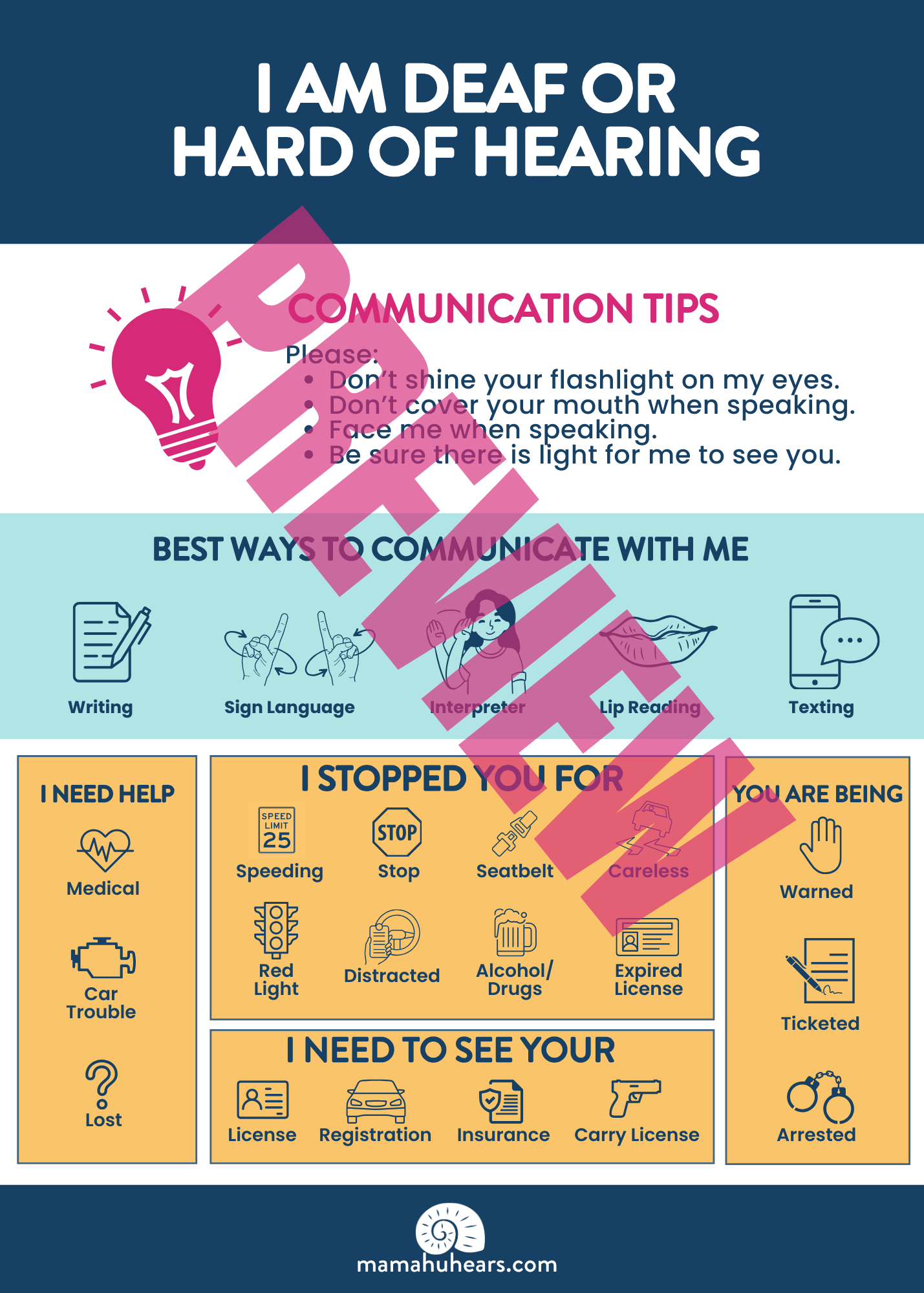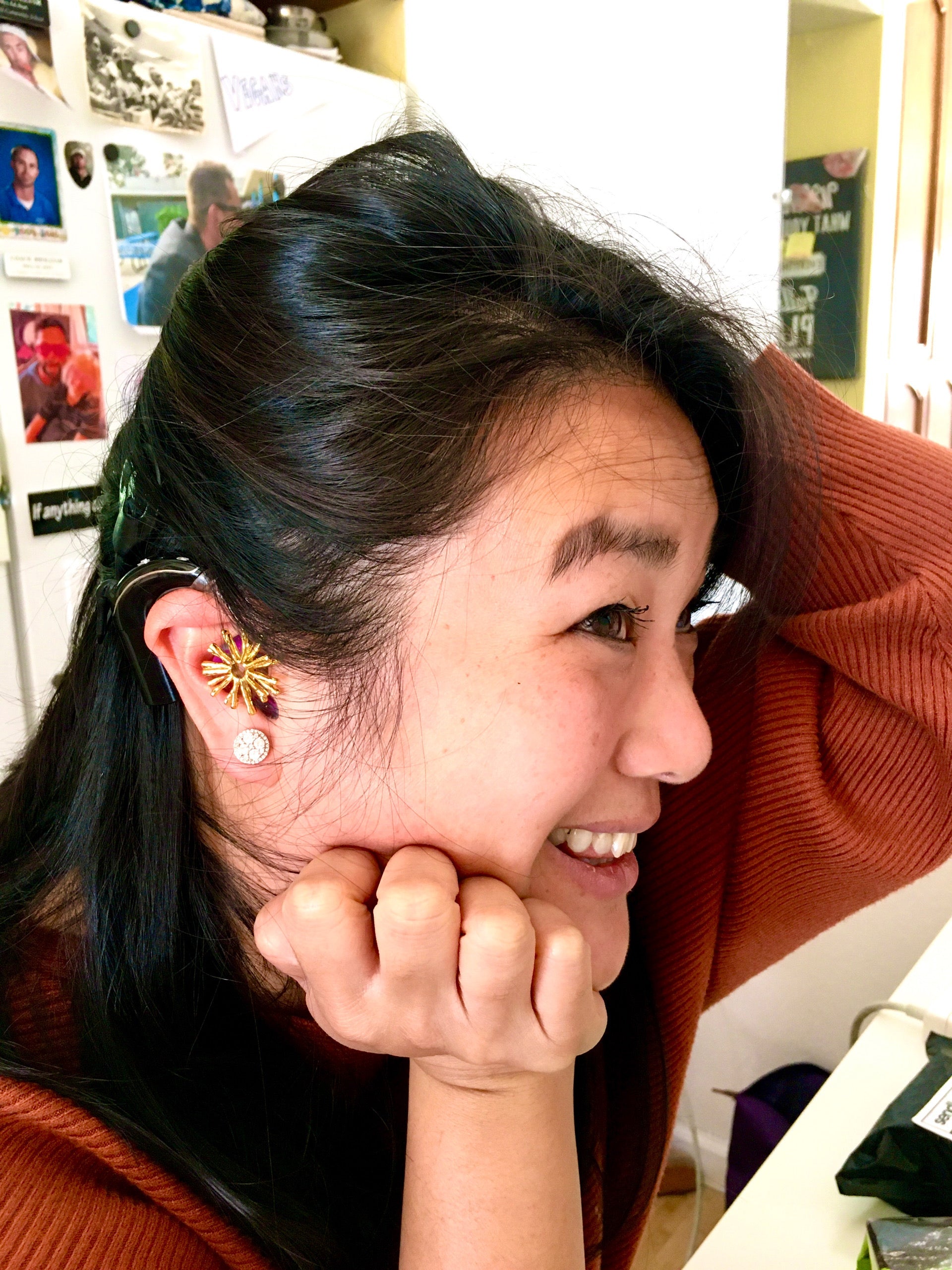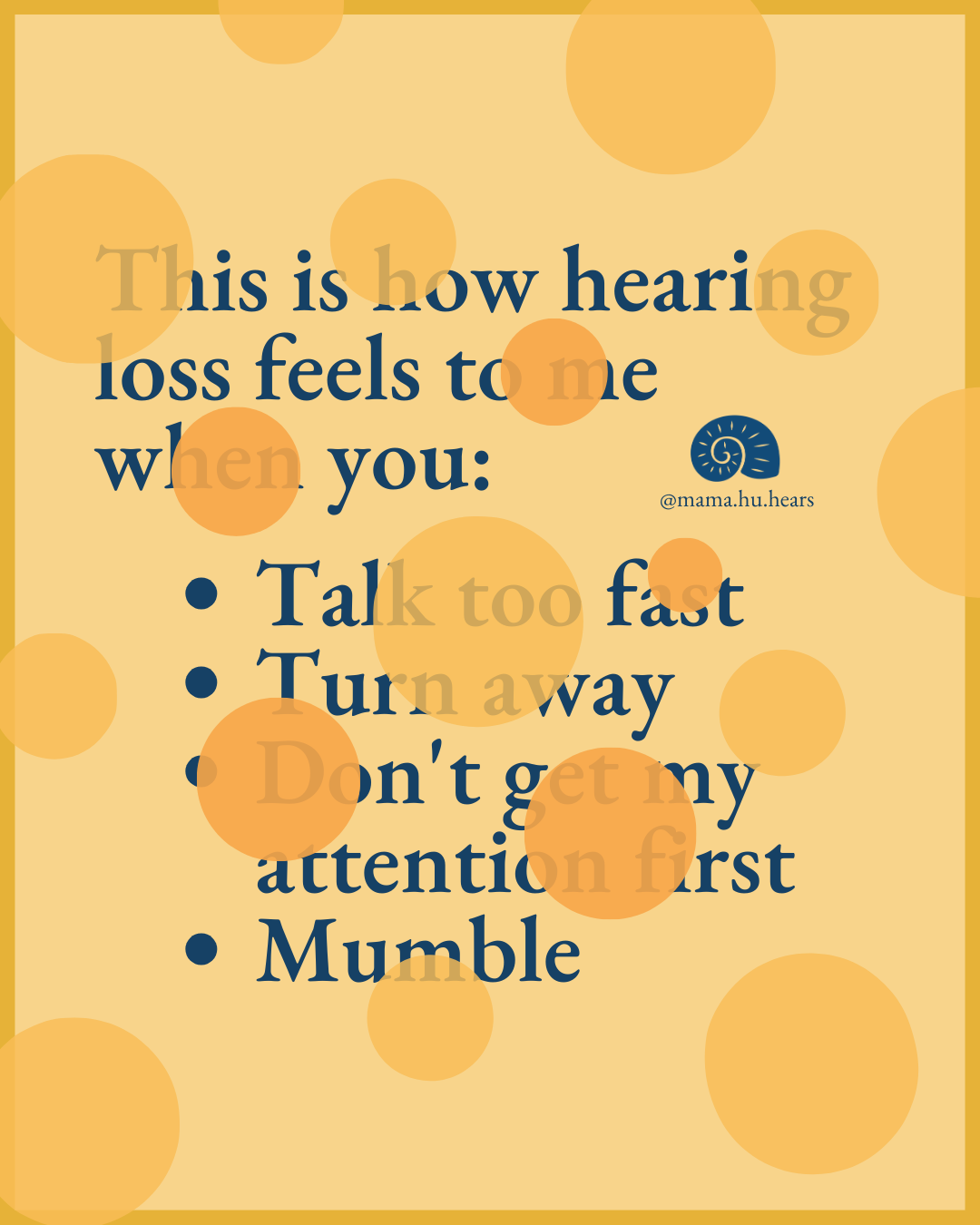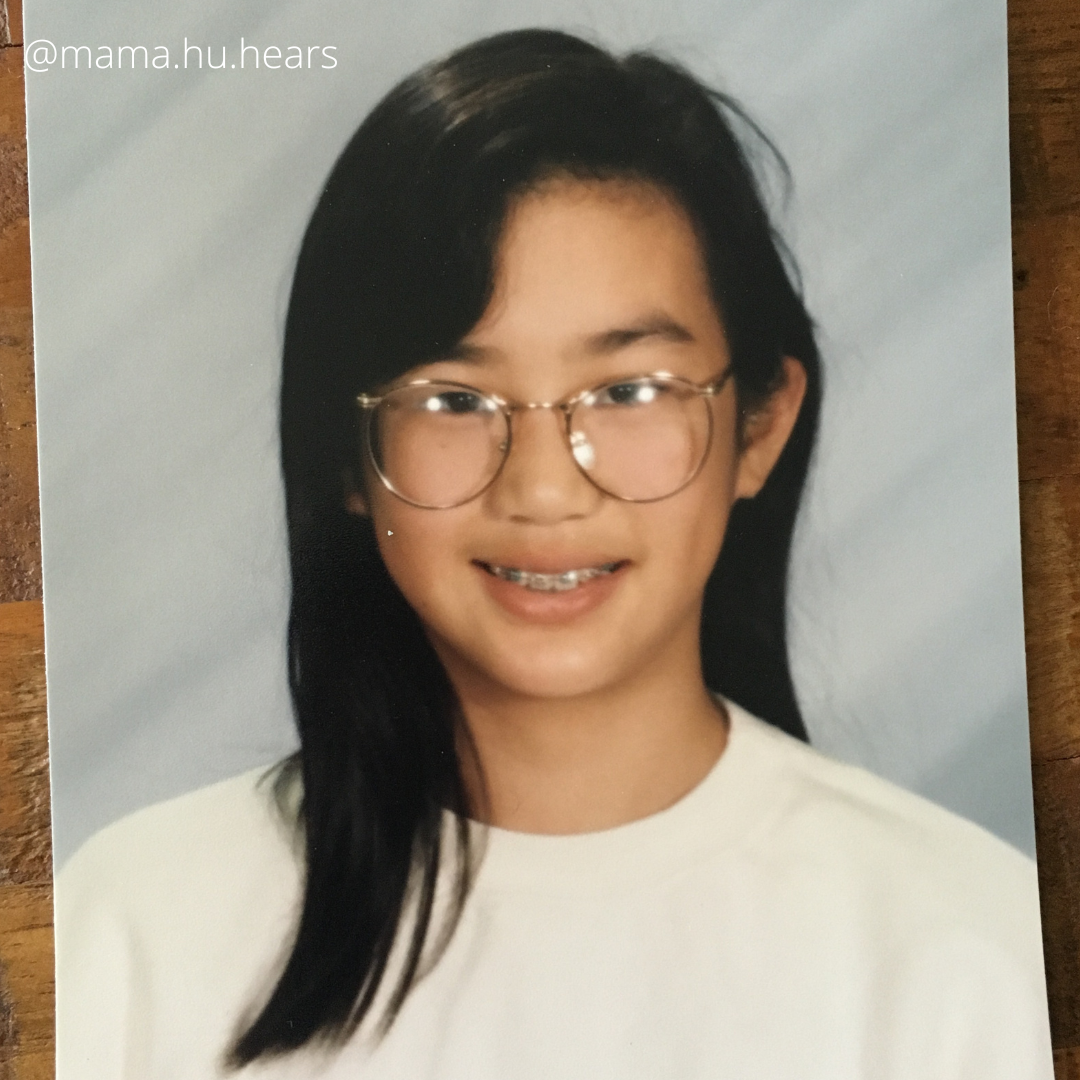I’m in a unique position. People make appointments TO diagnose, talk about, address and do something about their hearing loss. I see and love working with adults but my job specifically works with babies through teens.
So when they ask, I let them know “these are cochlear implants. I would actually feel a firetruck before I heard it.” If they have the bandwidth to understand or the time, I might continue. “My hearing loss was/is so profound that I had a surgery to place an electrode inside to bring sound information to my brain that way.”
This constant conversation in the clinic has allowed me to feel comfortable in random situations like the grocery store, elevators, when volunteering and meeting my husbands co-workers.
Let’s rewind over 30 years. My teachers were pretty amazing in that I got to have my own show and tell with my hearing aids. So my classmates knew that I couldn’t hear very well and that my hearing aids helped me.
But on the playground I got creative. “Radios! I’m listening to music!” Or “Ear warmers! My ears squeak if I wear a hat so these keep them warm!” 🤦🏻♀️🤣
By 5th or 6th grade my hearing loss had progressed to a profound severity level and my @oticonusa DigiFocus II hearing aids were pretty big. #Silverlining of not ever having to move and living in a small town: everyone knew each other so no one really questioned my hearing aids or massive FM system. P.S. I also had bad hair, braces and glasses 🤓 😂
I credit my parents for not treating me like a fragile egg and keeping the status quo. Hearing aids were just something that I needed as a person like we needed to put our seatbelts on in the car. If someone asked, I would show them the switches and batteries, how I put them on and tell them “now I can hear!” I think the more you talk about it, the more ownership you take, the easier it becomes.


